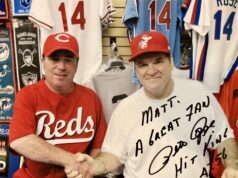BY RL REEVES JR

In 1979 Trader Joe’s, the small, California-based chain hit the big time. German billionaires Theo and Karl Albrecht bought the small concern from founder Joe Coulombe and folded it into their vast holding company that included Aldi’s the now-famous discount grocery store chain.
Private labels are the driver of the Trader Joe’s in-store economy. By utilizing brands such as Charles Shaw (the infamous 2 Buck Chuck) the now enormous chain -375 outlets with an estimated 9 billion dollars in annual revenue-has caught fire in North America.
The rise to power has not come without controversy. In a now famous letter titled “Hypocrisy Is Not Sustainable,” a coalition of Florida based tomato pickers called on Trader Joe’s to adhere to the standards set forth in the Campaign For Fair Food, in a nutshell the group was attempting to get better wages for its workers. Trader Joe’s declined and the stage was set for a national confrontation.
Internal debate raged at Trader Joe’s over the impending controversy. Finally, in February of this year the corporation conceded and signed a Fair Food Agreement wherein the company will pay a penny more per pound for its tomatoes.
Trader Joe’s looked to a future with angry protestors brandishing picket signs outside their small, tidy stores and decided a penny a pound was a small price to pay for their corporate weal.
Welcome to Lexington Trader Joe’s. We’re happy to have you.








